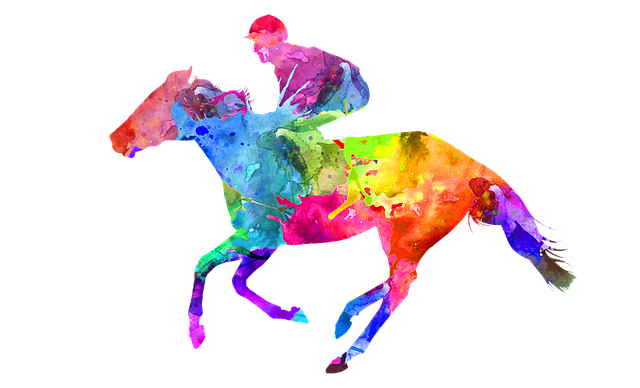 Obviously, the maximum and minimum weights carried by racehorses varies from one racing jurisdiction to another and also depends, in part, on the discipline in which horses compete. In Britain, horse racing is divided into National Hunt racing, in which horses jump obstacles, and Flat racing, in which horses have no obstacles to negotiate. In National Hunt racing, horses carry a maximum weight of 12st and a minimum weight of 10st 2lb, subject to any weight allowances for inexperienced jockeys, and on the Flat they carry a maximum weight of 10st 2lb and a minimum weight of 8st 2lb, again subject to allowances.
Obviously, the maximum and minimum weights carried by racehorses varies from one racing jurisdiction to another and also depends, in part, on the discipline in which horses compete. In Britain, horse racing is divided into National Hunt racing, in which horses jump obstacles, and Flat racing, in which horses have no obstacles to negotiate. In National Hunt racing, horses carry a maximum weight of 12st and a minimum weight of 10st 2lb, subject to any weight allowances for inexperienced jockeys, and on the Flat they carry a maximum weight of 10st 2lb and a minimum weight of 8st 2lb, again subject to allowances.
Regardless of the actual numbers involved, all professional jockeys must maintain a certain body weight for races and, historically, have been known to resort to dubious rapid weight-loss techniques, such as self-induced vomiting and taking diuretics, or ‘water’ pills, to do so. Struggles with the scales are nothing new, but in recent years the Professional Jockeys’ Association (PJA) and the British Horseracing Authority (BHA) have adopted a more proactive approach to promoting healthy weight loss among jockeys.
Of course, neither National Hunt nor Flat racing impose height restrictions, but the fact remains that taller jockeys struggle to make the weight requirements. Thus, National Hunt jockeys stand around 5’8″ tall, on average, and weigh in at around 10st 3lb, while their Flat counterparts stand around 5’2″ tall, on average, and weight in at around 8st 11lb. Of course, there are always exceptions; Lester Piggott and Sir Anthony McCoy maintained average riding weights of 8st 5lb and 10st 10lb, respectively, despite both being 5’10” tall.
Such outstanding sporting dedication deserves recognition and encouragement from the Professional Jockeys’ Association (PJA) and the British Horseracing Authority (BHA), and Custom Medals For Awards are the perfect way to celebrate these sporting achievements in a tangible way.
Ideal for race organisers, these custom medals can be tailored to specific race details, race events or iconic race-themed images, creating a timeless keepsake that celebrates both the physical demands and the competitive spirit of the sport.
Just like the precision required to maintain riding weight, custom medals are meticulously crafted to match the significance of each victory, providing winners with a tangible representation of their hard-earned success.
